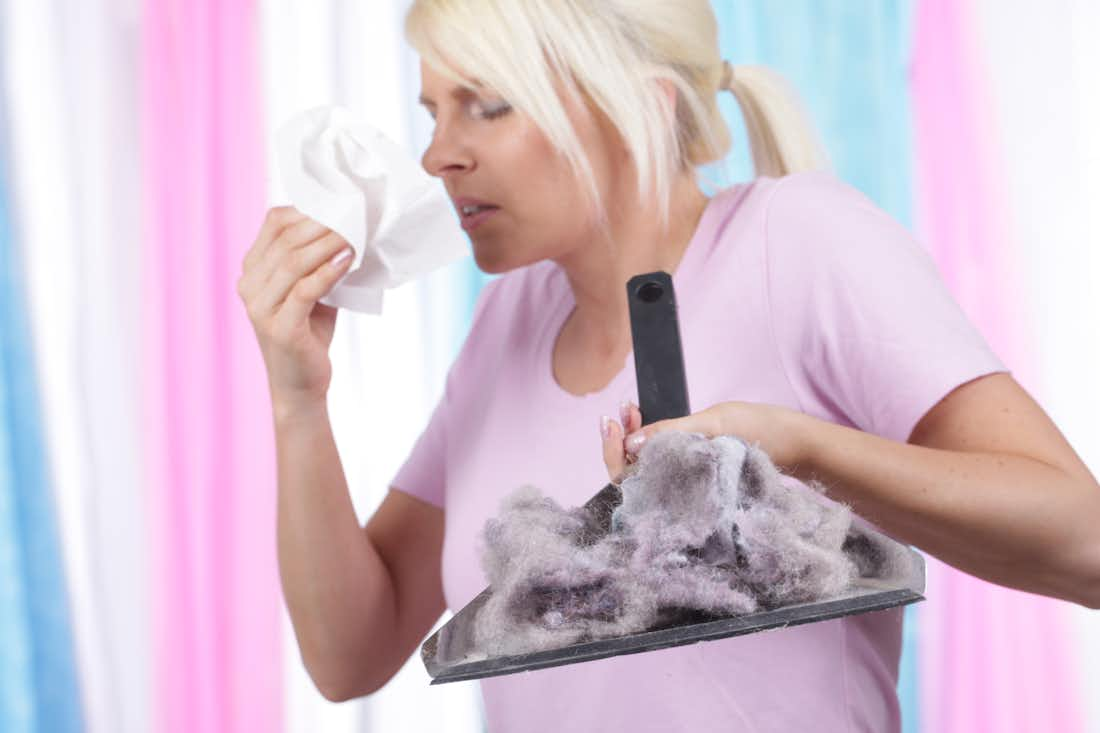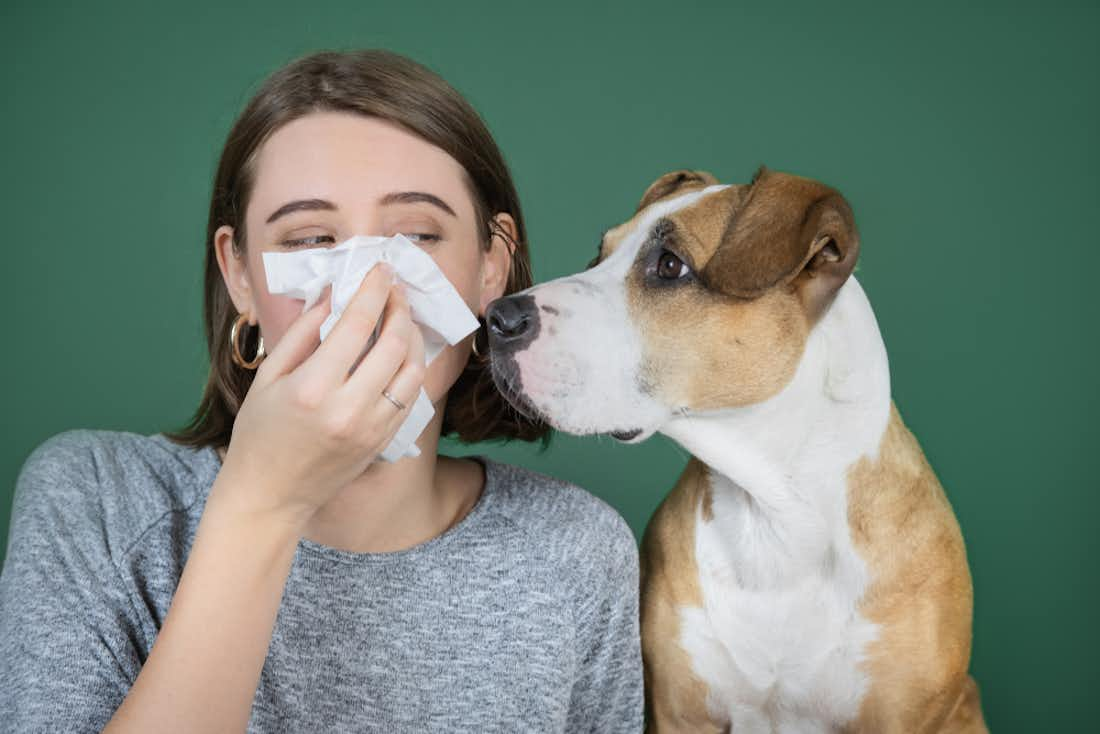Jul 14, 2022
Skin Allergy Symptoms: What You Should Watch For
minute read
Your skin is your largest organ in the body, and it’s your first line of defense to protect your insides from all the scary stuff on the outside. Having clear, healthy skin is not only great for your holistic well-being, but it can also help you feel more confident.
But if touching certain substances turns your glowing skin into a rash-covered nightmare, you’re not alone. Skin allergies are more common than you might think, even though that doesn’t make them any less frustrating.
The good news is, there’s hope for those of you who feel too much from a simple touch. Here’s everything you need to know about skin allergies.
What Are Common Skin Allergy Symptoms?
Most allergies occur because of ingestion or inhalation. For instance, seasonal allergies are often caused by the inhalation of pollen particles floating through the air. Food allergies are caused by consuming proteins in a food that the body considers harmful.
Skin allergies is a broad term, and today we are talking about skin allergies that can be caused by coming into contact with an irritant — called contact dermatitis. Contact dermatitis is a red, itchy allergic skin condition caused by direct contact with a substance you’re allergic to.
While environmental allergies can make you feel sneezy, wheezy, or otherwise uneasy, the symptoms of contact dermatitis are typically only related to physical discomfort. Contact dermatitis presents itself as:
- Red, itchy skin rash
- Hives or urticaria
- Dry, cracked, scaly skin
- Blisters, sores, or welts that sometimes ooze
- Swelling, burning, or general tenderness
These rashes usually don’t pose any harm to your health, but they can definitely feel uncomfortable. If the reaction is so uncomfortable that it affects your daily wellbeing, or if it has spawned in an area of the body such as your genitals or face, you’ll want to see a doctor.
Certain viruses or fungi can cause illness with skin symptoms that mimic allergies. Illnesses like measles, chickenpox, and scarlet fever can lead to allergy-like rashes, but these illnesses can be severe and require treatment.
Additionally, if your throat starts to close, you start to have difficulty breathing or experiencing other symptoms of a severe reaction, you should seek emergency care immediately. This may be a sign of anaphylaxis, a potentially life-threatening allergic reaction.
What Are Common Causes of Skin Allergies?
Essentially anything can cause an allergic reaction in certain people, but in almost all cases, the substance itself doesn’t actually pose any real threat to your health. Instead, your immune system just perceives it as dangerous and begins its immunological response to try to eradicate it.
When you touch something that your immune system isn’t a fan of, it sends white blood cells to the surrounding area, releasing chemicals and causing inflammation. This response is what causes the itchy, uncomfortable rash.
To understand what causes contact dermatitis, it’s helpful to know the two main types.
Allergic Contact Dermatitis
If that new bracelet of brass is giving you a nasty rash, you might have allergic contact dermatitis. This occurs when you come into contact with a substance that your body perceives as an allergen.
If you’ve ever gone on a hike in the forest and come out with some poison ivy on your legs, ankles, or knees, this is an allergic reaction to the plant that causes itchiness. Poisons are strong allergens that can cause symptoms after one exposure, though most other allergens are weaker and only present themselves after prolonged exposure.
Additionally, allergic contact dermatitis can occur if certain substances become ingested, such as foods, medicines, or respiratory particles like pollen and pet dander.
Common allergens include:
- Jewelry, particularly metals like nickel
- Deodorants, body washes, and other cosmetics
- Plants, such as poison ivy, poison oak, poison sumac, or mango
- Perfumes or other personal care products, particularly those that contain Balsam of Peru
- Medications, like antibiotic ointments or topical lotions
- Airborne substances, like ragweed or pollen
- Cleaning products or disinfectants, usually those that contain formaldehyde
Irritant Contact Dermatitis
The other and more common type of contact dermatitis is called irritant contact dermatitis. This is not caused by exposure to an allergen, but rather, it’s a skin reaction due to damage to the skin barrier.
So how can you tell the difference? While a rash is common in allergic and irritant contact dermatitis, irritant dermatitis tends to be more discomforting than itchy.
The common suspects that cause this type of dermatitis are usually chemical or acid-based. They include things like:
- Alkalis
- Paints and varnishes
- Fragrances
- Harsh soaps or detergents
- Hair dyes
- Nail polish remover
- Acidic cleaners
- Body fluids
Eczema
Also known as atopic dermatitis, eczema is when your skin becomes red and itchy. While adults can develop eczema, it is most common in children.
In most cases, eczema is caused by a gene variation where the skin fails to adequately protect itself. However, it can also be caused by certain food allergies, especially common at a young age.
Rash Decisions: How Can You Treat Skin Allergies?
Again, skin allergies don’t usually pose any real threat to your physical health. With that said, they can definitely ruin your mental health. That’s why it’s so important to get it treated as soon as possible.
For starters, let’s talk about what not to do. As enticing as it might be, you don’t want to scratch your rash. This is because you may break the skin and make the area prone to infection, which can negatively affect your physical well-being. If you’re itching to stop the itching, you should consult with a doctor who can help you find creams to help fight the urge to scratch.
One of the best ways to treat contact dermatitis and any type of allergy is to avoid it. For instance, if you know that nickel gives you a rash, just be sure you don’t wear jewelry containing that metal type. And if you’re unsure what exactly is making your skin flare, getting an allergy test can clear things up.
Additionally, allergic dermatitis usually only occurs for as long as you’re exposed to the allergen. So if you wash the affected area, you might be able to eradicate that rash fast.
You can also purchase protected coverings to go over certain metallic surfaces, such as clothing buttons so that they don’t rub up against your skin. In the same vein, an over-the-counter barrier cream can help to prevent reactions when touching certain allergens can’t be avoided.
Skin It To Win It
Skin allergies differ from the typical allergic reaction in that they don’t just feel uncomfortable -- they can also alter your physical appearance. Allergic dermatitis can result in itchy, red bumps on your skin and blistering rashes when exposed to an allergen.
You can normally tell what substances are causing your skin to react, but taking an allergy test can make it more clear. Regardless, you should be on the lookout for common contact allergens like nickel, poison ivy, detergents and cleaners, and deodorants. Additionally, consuming certain medications or foods may result in hives or another type of skin reaction.
Treating skin allergies is usually as simple as removing the substance from your skin, but you can help with the itch by using anti-itch ointments or creams. And if that doesn’t work, your online allergist is in. Take our free 5-minute quiz to see how Cleared can clear up your skin in no time.
Sources:
Contact dermatitis - Symptoms and causes | The Mayo Clinic
Balsam of Peru allergy | DermNet NZ
Irritant & Allergic Contact Dermatitis: Symptoms, Diagnosis & Causes | Cleveland Clinic
Atopic dermatitis (eczema) - Symptoms and causes | The Mayo Clinic
Authors

Dr. Payel Gupta
Medically reviewed by Dr. Payel Gupta



